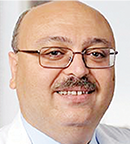Advanced mantle cell lymphoma appears to be a good target for chimeric antigen receptor (CAR) T-cell therapy. Treatment with KTE-X19, an anti-CD19 CAR T-cell product, led to unprecedented outcomes in patients with relapsed or refractory disease in the phase II ZUMA-2 study presented at the 2019 ASH Annual Meeting & Exposition.1

Michael L. Wang, MD
“KTE-X19, in a single infusion, demonstrated high rates of durable responses in relapsed or refractory mantle cell lymphoma. The 93% objective response rate, which includes a 67% complete response rate, is the highest reported rate of disease response in patients with prior BTK [Bruton’s tyrosine kinase] inhibitor failure,” according to Michael L. Wang, MD, of The University of Texas MD Anderson Cancer Center, Houston, who presented the primary efficacy analysis of 60 patients from ZUMA-2.
Dr. Wang noted that the typical response rate among patients experiencing disease progression on BTK inhibition is 25% to 42%. Nearly half the patients in ZUMA-2 have been followed for at least 24 months, and 40% of patients have converted from a partial response or stable disease to a complete response, he added.
KTE-X19 consists of an anti-CD19 single-chain variable fragment with a CD3 zeta T-cell activation domain and a CD28-signaling domain. During the manufacturing process, circulating tumor cells are separated from autologous immune cells, which differentiates KTE-X19 from the CAR T-cell product axicabtagene ciloleucel, Dr. Wang said.
Based on findings from the ZUMA-2 trial, Kite Pharma and Gilead Sciences submitted a biologics license application to the U.S. Food and Drug Administration (FDA) on December 11, 2019, for KTE-X19 in relapsed or refractory mantle cell lymphoma. KTE-X19 has already received a Breakthrough Therapy designation from the FDA and a prime medicines (PRIME) designation from the European Medicines Agency, both based on these findings.
ZUMA-2 Trial Design and Outcomes
ZUMA-2 enrolled 74 patients, manufactured a product for 71 patients (96% manufacturing success), and administered KTE-X19 to 68 patients. Most patients (85%) had stage IV disease, and 56% had intermediate or high-risk Mantle Cell Lymphoma International Prognostic Index scores. Patients had received a median of three prior therapies; almost all had been treated with an anthracycline or bendamustine, and 100% had received an anti-CD20 antibody and a BTK inhibitor.
Bridging therapy was received by 37% of patients; this therapy could include ibrutinib, acalabrutinib, or dexamethasone but not chemotherapy. These patients tended to have a large tumor load, the investigators noted.
Overall, KTE-X19 was effectively manufactured for 96% of patients and administered to 92%. The median time from leukapheresis to delivery of KTE-X19 was 16 days. KTE-X19 was administered at 2 × 106 cells/kg as a single infusion.
KEY POINTS
- The CAR T-cell product KTE-X19, which targets CD19, proved active in patients with advanced mantle cell lymphoma.
- The 93% objective response rate, which includes a 67% complete response rate, is the highest reported rate of disease response in patients experiencing disease progression after a BTK inhibitor.
- The safety profile was consistent with that reported in previous studies of anti-CD19 CAR T-cell therapy for aggressive non-Hodgkin lymphoma.
Responses deepened over time in some patients, and many were durable, with a median duration of response not yet reached at the time of this analysis. Among complete responders, 78% remained in remission after a median 12.3 months of follow-up. The median follow-up was 27 months for the first 28 patients treated, 43% of whom remained in remission. The median progression-free survival was not reached in the study. The estimated 12-month progression-free survival rate was 61%, with a tail on the curve emerging. Additionally, the median overall survival was also not reached, with 83% of patients alive after a median follow-up of 12 months, reported Dr. Wang.
“I have been treating mantle cell lymphoma for 20 years, and every time I see a plateau in the curve, I get very excited,” he commented. “The follow-up is short, but we are still cautiously optimistic.”
Tolerability
“The safety profile was consistent with that reported in previous studies of anti-CD19 CAR T-cell therapy for aggressive non-Hodgkin lymphoma,” Dr. Wang said. “There were no deaths due to cytokine-release syndrome or neurologic events. Most symptoms occurred early and were reversible.”
The most frequent treatment-emergent adverse events of any grade (some of which were related to cytokine-release syndrome) were pyrexia (94%), neutropenia (87%), thrombocytopenia (74%), anemia (68%), and hypotension (51%). Grade 4 adverse events included neutropenia (69%), thrombocytopenia (35%), hypoxia (9%), and hypotension (3%). There were two grade 5 adverse events—organizing pneumonia related to the conditioning therapy and staphylococcal bacteremia due to conditioning therapy and KTE-X19.
One patient developed grade 4 cerebral edema; he was intubated and treated aggressively with tocilizumab, siltuximab, high-dose steroids, intrathecal cytarabine plus dexamethasone, mannitol, ventriculostomy, and, for the first time in CAR T-cell toxicity management, intravenous rabbit antithymocyte globulin. The neurotoxicity fully resolved for this individual, and his complete response was ongoing for more than 24 months at data cutoff.
“The efficacy, reliable and rapid manufacturing, and manageable toxicities identify an important and promising role for KTE-X19 in treating patients with relapsed or refractory mantle cell lymphoma, who have an urgent, unmet medical need,” Dr. Wang concluded.
DISCLOSURE: Dr. Wang reported a financial relationship with Kite, a Gilead company, the sponsor of the trial.
REFERENCE
1. Wang ML, Munoz J, Goy A, et al: KTE-X19, an anti-CD19 chimeric antigen receptor (CAR) T cell therapy, in patients with relapsed/refractory mantle cell lymphoma: Results of the phase 2 ZUMA-2 study. 2019 ASH Annual Meeting & Exposition. Abstract 754. Presented December 9, 2019.


